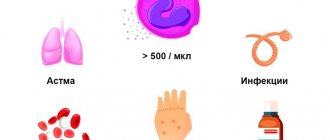Each of us has “bad days” when everything goes wrong, troubles arise at work every now and then, and “out of the blue” reasons for conflicts with friends or family members appear. Naturally, all this does not have the best effect on your mood. But in most cases, gloominess, irritability, and the desire to “lash out” at others pass quickly: just have a good rest, “disconnect” from work, spend the day with loved ones, watch a couple of your favorite films. However, dysphoria is fundamentally different from the usual “bad mood”; such a condition is considered in modern psychiatry as a pathological syndrome that requires at least the help of a psychologist, and more often the use of medications. But in addition, dysphoria can be one of the manifestations of severe mental illness. Medical doctors will conduct a comprehensive examination of the patient and individually select a treatment regimen.
What is dysphoria
Dysphoric disorder is characterized by a constant gloomy, gloomy mood with causeless irritability, anger, hysteria, and outbreaks of aggression arise completely spontaneously, for no apparent reason. The pathogenetic cause of this condition is a violation of the processes of production and reuptake of neurotransmitters - substances that are “responsible” for the transmission of nerve impulses and determine all the emotions experienced by a person.
It is the deficiency of norepinephrine, dopamine and serotonin that causes all the symptoms characteristic of dysphoria. In addition, such malfunctions in the functioning of the central nervous system often become the cause of other diseases, which, according to the modern classification, are combined into the group of psychosomatic disorders. To date, the connection between dysphoria and autoimmune pathologies, oncology, diseases of the cardiovascular and endocrine systems has been proven.
A hyperbolic reaction to even minor troubles increases the risk of heart attacks and strokes at an early age, chronic hypertension, and serious metabolic disorders.
There is a high probability of damage to the gastrointestinal tract (gastritis, colitis, pancreatitis); it has already been established that dysphoria is one of the main etiological factors of gallbladder dysfunction.
In psychology
From the point of view of psychologists, dysphoria is a negative emotion, manifested by low mood with gloominess, irritability and anger. In a state of dysphoria, a person is impatient and unrestrained; even a slight irritant can cause a violent reaction of anger and aggression. Like any negative emotion, it arises from a situation that is subjectively assessed as undesirable or unpleasant. Anyone can experience dysphoria, but those who are tired or sick often experience it, while those who are rested and healthy rarely experience it.
Causes
Dysphoria should be clearly differentiated from a bad, depressed mood caused by external circumstances. According to experts, neurotransmitter imbalances are based on:
- hereditary features of the functioning of the central nervous system;
- systematic alcohol abuse, drug use;
- organic brain damage as a result of severe traumatic brain injury, chronic hypoxia, or stroke.
However, even in the presence of these disorders, dysphoric disorder does not always develop. Symptoms of the disease can be caused by:
- overwork, too intense physical and mental stress;
- violation of daily routine, chronic lack of sleep;
- stress caused by any problems in the family or at work;
- withdrawal syndrome due to sudden withdrawal from psychostimulants;
- conflicts with loved ones, colleagues;
- psychotrauma;
- hormonal imbalances caused by any disease or physiological age-related changes;
- serious illness diagnosed in oneself or relatives, etc.
Dysphoria is a symptom of a number of other psychoneurological diseases:
- depression;
- post-traumatic, generalized anxiety disorder;
- psychosis;
- neuroses and neurasthenia;
- schizophrenia, etc.
Symptoms
In a state of dysphoria, a person looks gloomy, tense and wary. When communicating, such people are rude, prone to petty touchiness and picky. Characterized by increased sensitivity to sound, smell, bright light, and touch. There are almost always somatic manifestations in the form of increased heart rate, breathing, impaired muscle tone (convulsions, twitching, tics) and vegetative symptoms. With severe dysphoria, aggressive behavior towards oneself (self-cutting, self-harm) or towards others (insults, threats, beatings, etc.) is possible.
Clinical manifestations
The main signs of dysphoria include:
- apathy;
- melancholy;
- decreased performance, exercise intolerance;
- anxiety, restlessness;
- unpredictable outbursts of anger and aggression, physical violence and attempted attacks are not excluded;
- offensive, malicious statements addressed to others.
In addition, dysphoria is often accompanied by somatic disorders:
- insomnia with nightmares;
- weakness, weakness;
- shortness of breath;
- headache, tachycardia;
- pulsation in the temples and ears, especially during attacks of anger;
- paroxysmal or chronic pain in the chest, abdomen;
- eating disorders (worsening of appetite or, conversely, overeating, anorexia, bulimia);
- deterioration of the condition of the skin, hair and nails;
- menstrual disorders, decreased libido, and in men - impotence.
Dysphoric disorder also causes serious disturbances in the functioning of the immune system , which reduces the body's resistance to various types of viral and bacterial infections.
FORENSIC PSYCHIATRIC ASSESSMENT OF DYSPHORIA
Forensic psychiatric assessment of affective states is part of the work of forensic experts, and the foundation in the diagnosis of determining sanity. Dysphoria - (translated from Greek disphoria - irritation, annoyance), is a state of depression, in other words, a mood disorder. Dysphoria is characterized by such features as: irritability - manifests itself in a person’s emotional state, all this is caused by the individual’s increased sensitivity to various external factors; mild manifestation of aggression - expressed by a demonstration of dissatisfaction, manifested in human behavior, causing harm to people in the form of moral, psychological and physical discomfort; affective outbursts are short-term emotional outbursts with violent motor activity and sadness.
The manifestation of dysphoria also depends on the severity of the disorders that the person experiences (they can range from simple touchiness to episodes of rage, fear, hopelessness).
The stage of excitement in dysphoria, especially severe, is accompanied by movement disorders – restlessness, disinhibition, up to psychomotor agitation. Excitement manifests itself in the form of monotonous movements, which are subsequently manifested by shouts of individual short phrases, and with more pronounced dysphoria, states of frenzy - raptus - arise. Raptus is expressed in a short-term attack of acute, frenzied excitement; this state manifests itself in cases of excessively intense affect for a given person, uncontrollable by him.
Dysphoria occurs without connection with any external reasons or circumstances. The onset of dysphoria most often manifests itself suddenly, lasting from several hours to a week, and sometimes more. With prolonged dysphoria, a person develops somatic disorders that lead to weight loss, insomnia, headaches, fluctuations in blood pressure and heart rate, lack of appetite, etc. Prolonged dysphoria in some cases ends in death.
If dysphoria was accompanied by symptoms such as confusion - a state of fear or surprise, impulsive phenomena, all this refers to the symptoms of manifest psychosis - in this state single or multiple epileptic seizures appear, in this case patients experience varying degrees of amnesia. The opinion of a large number of researchers is that dysphoria manifests itself in quite a few mental illnesses, but most often the manifestation of dysphoria occurs in a disease such as epilepsy, in which dysphoria can precede a seizure, complete it, or act as an equivalent. Dysphoria that occurs with epilepsy manifests itself in various impulsive phenomena - both in the form of actions (vagrancy) and desire disorders (alcohol variants, etc.).
Manifestations of dysphoria most often occur in the form of mental seizures in epilepsy. Dysphoria is often called an epileptic mood disorder.
Dysphoria arises not only against a background of low mood, which is accompanied by anxiety, unreasonable fear with anger, but also when there is an elevated mood (agitation, severe irritability). In low mood, taking into account the above symptoms, dysphoria in patients is accompanied by a desire to kill someone or commit suicide; an irresistible desire for vagrancy (dromomania), drunkenness, theft, arson, etc.
Based on forensic psychological practice, crimes committed by patients with epilepsy, in the form of dysphoric states, most often fall into the category of serious crimes. In order to find out whether there were signs of dysphoria at the time of the crime, objective information about an unmotivated sudden change in mood, and the presence of similar conditions previously, is important.
Forensic psychiatric assessment depends on the depth of dysphoria, because the presence of symptoms of dysphoria (delusional experiences, impaired consciousness) leads to the recognition of patients as insane.
Patients with dysphoria create a criminogenic danger, most often in a state of alcoholic intoxication, which leads to an increase in epileptic character traits (pictiness, gloomy tension), all this is expressed in a state of anger, their actions are aimed at family and friends. During the period when a change in mood occurs, the patient is under the rule of fear, indifference, etc. [3].
Dysphoria is typical for individuals who suffer from the epileptoid type of psychopathy. P.B. Gannushkin identified characteristic properties - extreme irritability, leading to attacks of rage, attacks of mood disorders, fear, anger. According to P.B. Gannushkin, it is necessary to emphasize the extreme characteristic tendency to episodic developing mood disorders, which arise both spontaneously and under the influence of some kind of mental experiences [1].
The difference between dysphoria and depression is the presence of three main elements: anger; sadness and fear. The duration of such a mood disorder is very variable, ranging from one day to a week, which causes violent and reckless outbreaks of epileptoids.
In addition to the total change in psychological appearance in epileptoid psychopathy, P.B. Gannushkin identified the epileptoid type of reactions - an acute, transient, reactive state. The essence of this state is embitterment, anger, melancholy, arising under the influence of difficult experiences, failures, grief, etc. The patient, revealing all the negative traits of his character, demonstrates hostility towards society, a desire to harm, to take revenge on the people who surround him, citing the fact that they could not give him happiness, comfort, and the desired conditions for life [2].
Dysphoria is divided into structural organization: dysphoric reactions, background, psychosis, and state. A dysphoric reaction means an angry-angry or (less often) sad-depressive affective outburst that manifests itself as a response to any reason. The dysphoric background is understood as emotional fluctuations (painful, unaccountable, etc.), which lead to the activity of patients in search of ways to eliminate them. Dysphoric psychosis is characterized by a gross disturbance of the reflective and cognitive activity of the brain, disruptive behavior, and a lack of a critical attitude towards experiences and actions that do not arise from a real assessment of situations. A dysphoric state is a complex, polymorphic formation, consisting of a variety of dysphoric psychoses, replacing each other, which are connected by a single dysphoric background, from which they arise. Such a division seems to be most consistent with the needs of expert practice. The presence of signs of dysphoric psychosis at the time of the crime should be classified as circumstances excluded by sanity.
The presence of signs of insanity or sanity of a person when committing a crime makes it possible to delineate criminal liability as a measure of punishment for an act committed that poses a social danger. The following criteria for a person’s condition are distinguished: insanity - in this case, the person is not aware of the actual nature and social danger of his actions, and cannot control them, due to mental or other illness; limited sanity - the ability of a person to understand the nature and social danger of his actions, but the inability to control them is limited by some kind of mental illness; sanity - in this state, a person is fully aware of the significance of the acts he commits, the social danger of his actions, and is able to fully manage them. Determining clear manifestations of dysphoria can lead to a radical review of the circumstances of the case and the guilt of the accused.
List of references and sources
1. Criminal Code of the Russian Federation: federal. Russian law Federation dated June 13, 1996 No. 64-FZ
(as amended on April 17, 2017): adopted by the State. Duma Feder. Collection Ross. Federation May 24, 1996 // Collection of legislation of the Russian Federation. 2021. No. 17. - Art. 2453.
2. Gannushkin P.B. Selected works / ed. prof. O.V. Kerbikova. Rostov n/a. — M.: Phoenix. 1998.- 416 p.
3. Melnikova T.S., Maksutova E.L., Khesin E.I. Neurophysiological characteristics of patients with epilepsy with affective disorders // Journal of Neurology and Psychiatry named after. S.S. Korsakov. 2001. No. 6.- P. 34 -38.
Diagnostic and treatment methods
To determine how to treat dysphoria, medical specialists need to find out the exact cause of the disorder and identify possible concomitant diseases. Often, questionnaires and psychotherapeutic testing are not enough, and additional laboratory and instrumental studies are needed:
- EEG, Dopplerography, brain tomography;
- determination of hormonal levels;
- Ultrasound of internal organs;
- ECG, ECHO-CG;
- according to indications - screening for autoimmune and oncological diseases.
The main method of treating dysphoria is regular consultations with a psychologist . Psychoanalysis and cognitive behavioral psychotherapy will help the patient cope with internal tension and more easily experience conflict and stressful situations.
Non-drug methods for correcting dysphoria are of great importance:
- art therapy;
- proper nutrition (if necessary, we help create a rational diet for weight loss/gain);
- physical exercise;
- daily walks in the fresh air;
- activities that distract from work and everyday worries.
Cost of services
| CONSULTATIONS OF SPECIALISTS | |
| Initial consultation with a psychiatrist (60 min.) | 6,000 rub. |
| Repeated consultation | 5,000 rub. |
| Consultation with a psychiatrist-narcologist (60 min.) | 5,000 rub. |
| Consultation with a psychologist | 3,500 rub. |
| Consultation with Gromova E.V. (50 minutes) | 12,000 rub. |
| PSYCHOTHERAPY | |
| Psychotherapy (session) | 7,000 rub. |
| Psychotherapy (5 sessions) | 30,000 rub. |
| Psychotherapy (10 sessions) | 60,000 rub. |
| Group psychotherapy (3-7 people) | 3,500 rub. |
| Psychotherapy session with E.V. Gromova (50 minutes) | 12,000 rub. |
| TREATMENT IN A HOSPITAL | |
| Ward for 4 persons | 10,000 rub./day |
| Ward for 3 persons | 13,000 rub./day |
| Ward 1 bed VIP | 23,000 rub./day |
| Individual post | 5,000 rub. |
| PETE | 15,000 rub./day |
This list does not contain all prices for services provided by our clinic. The full price list can be found on the “Prices” , or by calling: 8(969)060-93-93. Initial consultation is FREE!
Drug treatment
Medicines are prescribed when there is no visible effect from psychotherapy. To minimize the risk of adverse reactions and complications, the treatment regimen is always selected on an individual basis. Apply:
- mood stabilizers (lithium salts);
- sedatives and hypnotics (short-term course until the general psycho-emotional state is normalized);
- B vitamins, antioxidants;
- medications for the correction of concomitant diseases.
But most often, antidepressants are used, which act directly on the pathogenetic mechanisms of the development of dysphoria.
Ideally, treatment should begin as quickly as possible, without waiting for the depressive state to worsen and the development of concomitant psychosomatic diseases. To make an appointment, call us 24 hours a day 8(969)060-93-93.











